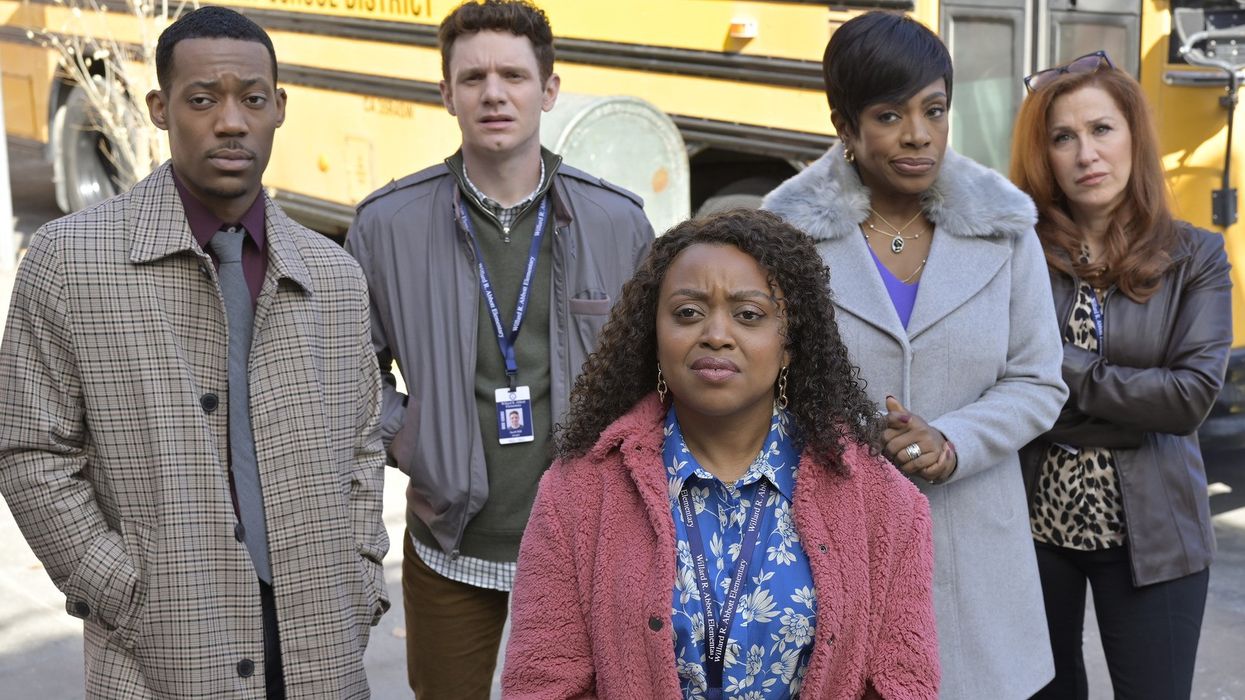UPDATED: Warner Bros. Shuts Down Writers/Directors Workshops and Stage 13
UPDATE, Oct. 12, 1 p.m.: Warner Bros. has reversed its decision to shut down its Writers/Directors Workshops, according to Deadline.

After much criticism for the decision to close opportunities for filmmakers, Warner Bros. announced it would move the workshops to WBD’s Diversity, Equity, and Inclusion unit.
As you can read below, talent and industry executives were not happy about the decision yesterday. The DGA committed to fighting against the decision, saying that it would not "stand idly by while WB Discovery seeks to roll back decades of advancement for women and directors of color."
PREVIOUSLY: The fire at Warner Bros. continues to burn, and new and aspiring writers and directors are now feeling the effects.
Warner Bros. isn’t done cutting away what CEO David Zaslav considers to be unnecessary to the company’s success. As the company continues to tighten its belt with more layoffs and removing developing or already made media, it has made a heartbreaking decision against opportunities for new and aspiring filmmakers.
According to the Los Angeles Times, the latest cut includes laying off 82 current employees and canceling 43 unfilled open positions (cutting around 19% of current staff and 26% of the total group), and ending the digital short-form programming division Stage 13 and the famous Warner Bros. Television Workshop, which has been around for more than 40 years.
In an email sent to staff, Warner Bros. Television Chairman Channing Dungey wrote, "For this kind of change to hit so close to home is incredibly difficult. But my hope is that these changes, made with an eye to a more focused business strategy, will strengthen and stabilize our company, maintain our great creative output, and better position us for continued future success.”

Stage 13 was founded in 2017 under the former Warner Bros. Digital Networks division. Past shows developed by Stage 13 include Netflix’s Special and It’s Bruno! as well as the CW’s Two Sentence Horror Stories.
Since 2020, Warner Bros. Television supervised Stage 13 development and programming. Any existing Stage 13 projects in development will be absorbed within WBTV. But the shutdown comes as a result of short-form programming losing interest, with the TV Academy merging several short-form categories in response to the slim pickings.
The 2022-2023 edition of the Warner Bros. Television Workshop, which includes the Writers Workshop and the Directors Workshop, will be its last.
The Writers/Directors workshops have been popular and sought-after avenues for training emerging writing and directing talent, with alumni including Zak Schwartz, Jim Campolongo, Jude Weng, and Regina King.
“It is the gold standard,” LaToya Morgan told the Hollywood Reporter about the workshop. After attending the workshop, Morgan was hired on Shameless, signed an overall deal with WBTV Group in 2020, and is now co-writing the upcoming HBO Max series, Duster, with J.J. Abrams.
“I am still friends with many of the people who were in my class,” Morgan said. “We call each other for advice, we help promote each other’s shows, we’re a family. That’s an opportunity that some future amazing storyteller won’t get now, to come up with your crew of folks who are going to have your back because you came up together.”
Morgan wasn’t the only alum to speak out against the company’s decision to end the workshop. Justin Doble, now an executive producer on The Lord of the Rings: The Rings of Power, said, “Absolutely gutting. Hundreds of careers were launched through this program—including mine. What a loss for the industry and for those trying to catch their first break.”
Even some who were not accepted into or didn’t go through the workshop were impacted by this decision in some way.
In a Twitter thread, WGA East vice president Lisa Takeuchi Cullen wrote about not being able to apply for the L.A.-based program because she was raising a young family in New Jersey. Then-Warner Bros. Senior Vice President, Christopher Mack, who ran the workshop for 10 years, offered Cullen a blind script deal after seeing her work for Time magazine, and personally mentored her through the TV development process.
“The workshop was famously difficult to get into, but execs like Chris Mack weren’t strictly gatekeepers,” Cullen wrote. “He knew the path to diversity in Hollywood was to find creative ways to let people like me in. Now is the time to open gates, not close them; fund programs, not gut them."
Stage 13 and the workshop were both major paths for new and underrepresented voices in television. Diversity and representation are vital for storytelling. If those voices are restricted from opportunity, then we are failing our community of filmmakers.
The hope is that Warner Bros. Television will continue to offer mentorships to writers and directors, but the company’s message seems louder than ever. They do not currently care about filmmakers or projects that do not appeal to everybody.
Let us know your thoughts in the comments.
This post was updated at Oct. 12, 1 p.m., with WB's decision to reverse the closure of its workshops.
Source: The Hollywood Reporter












